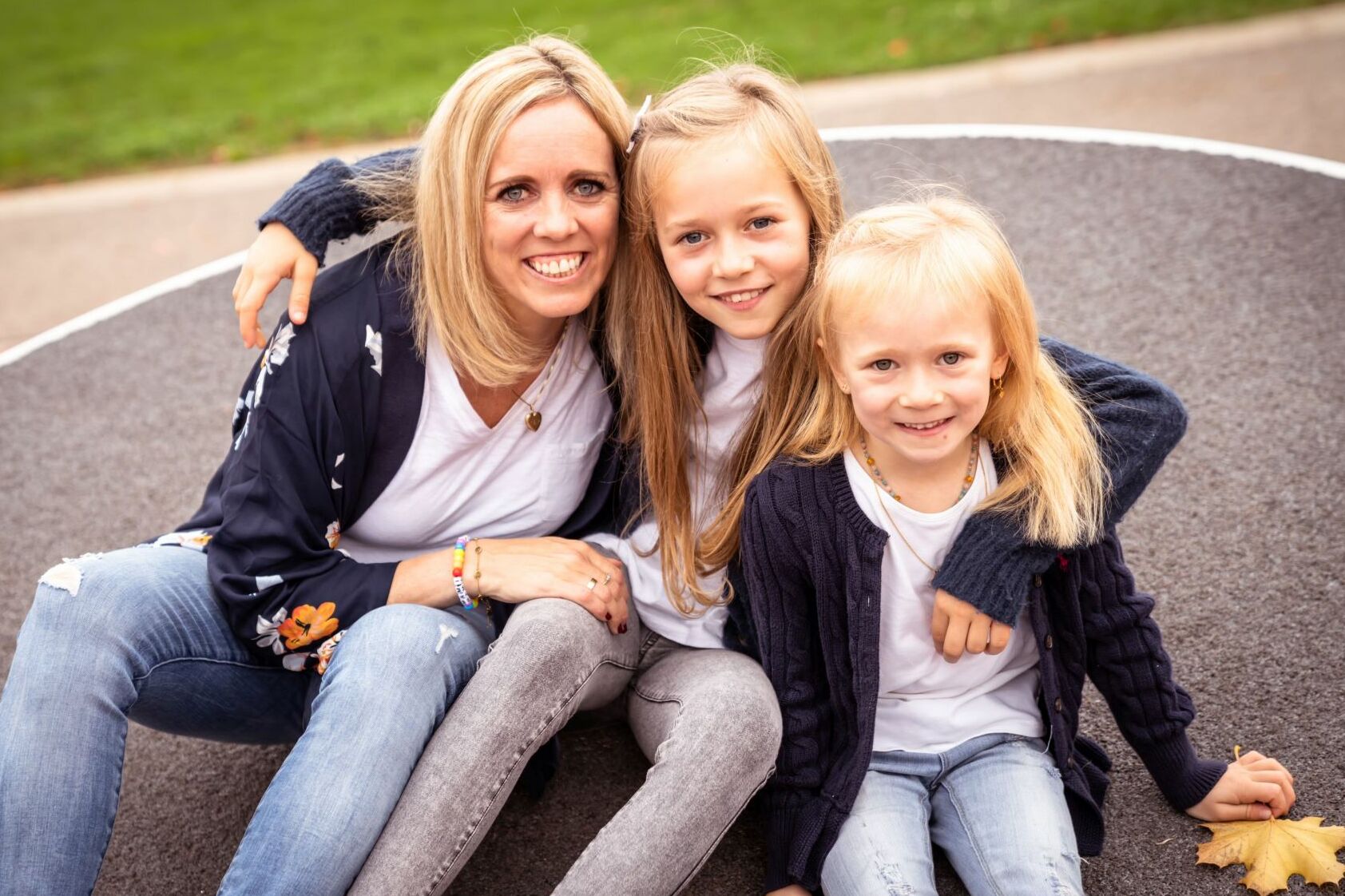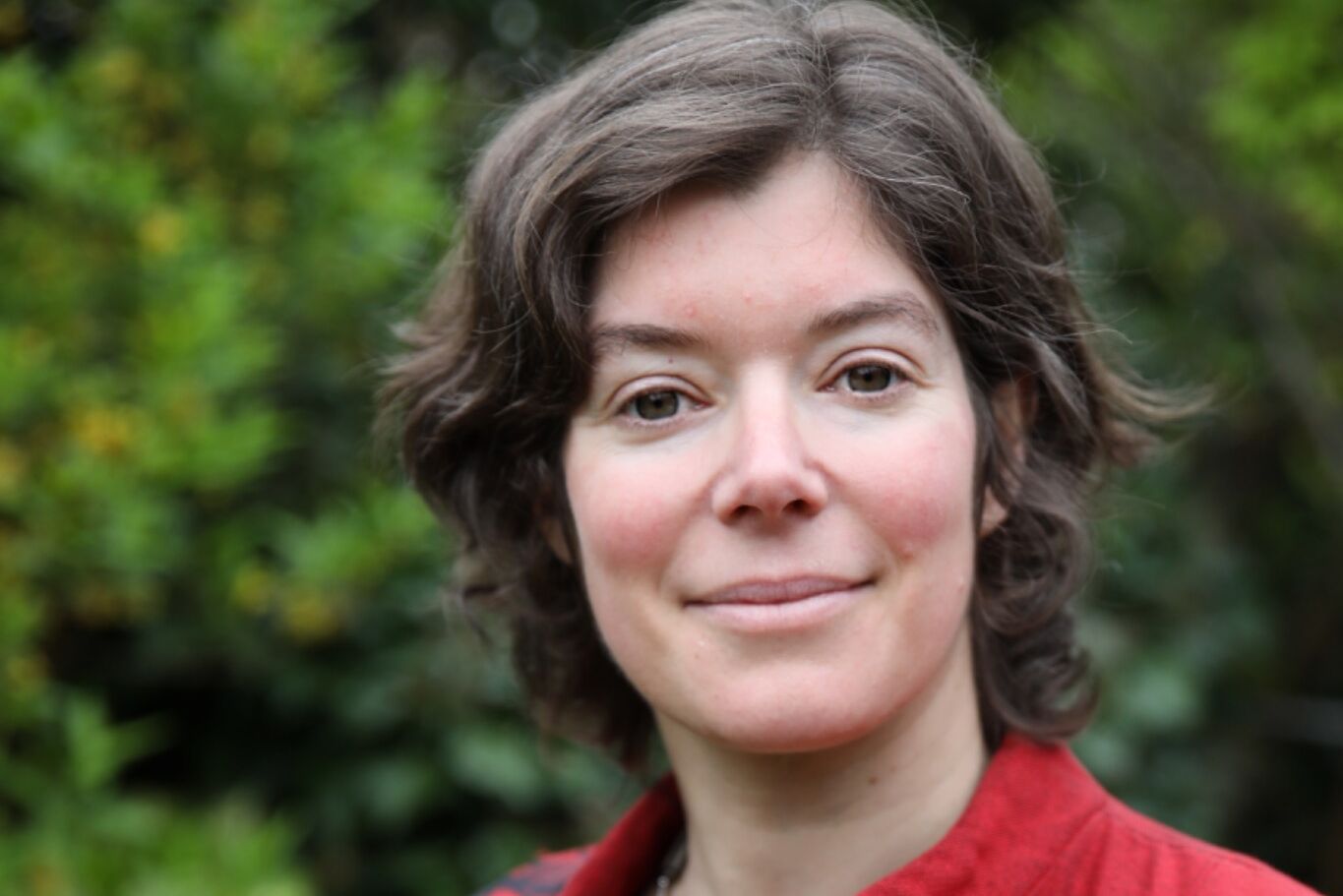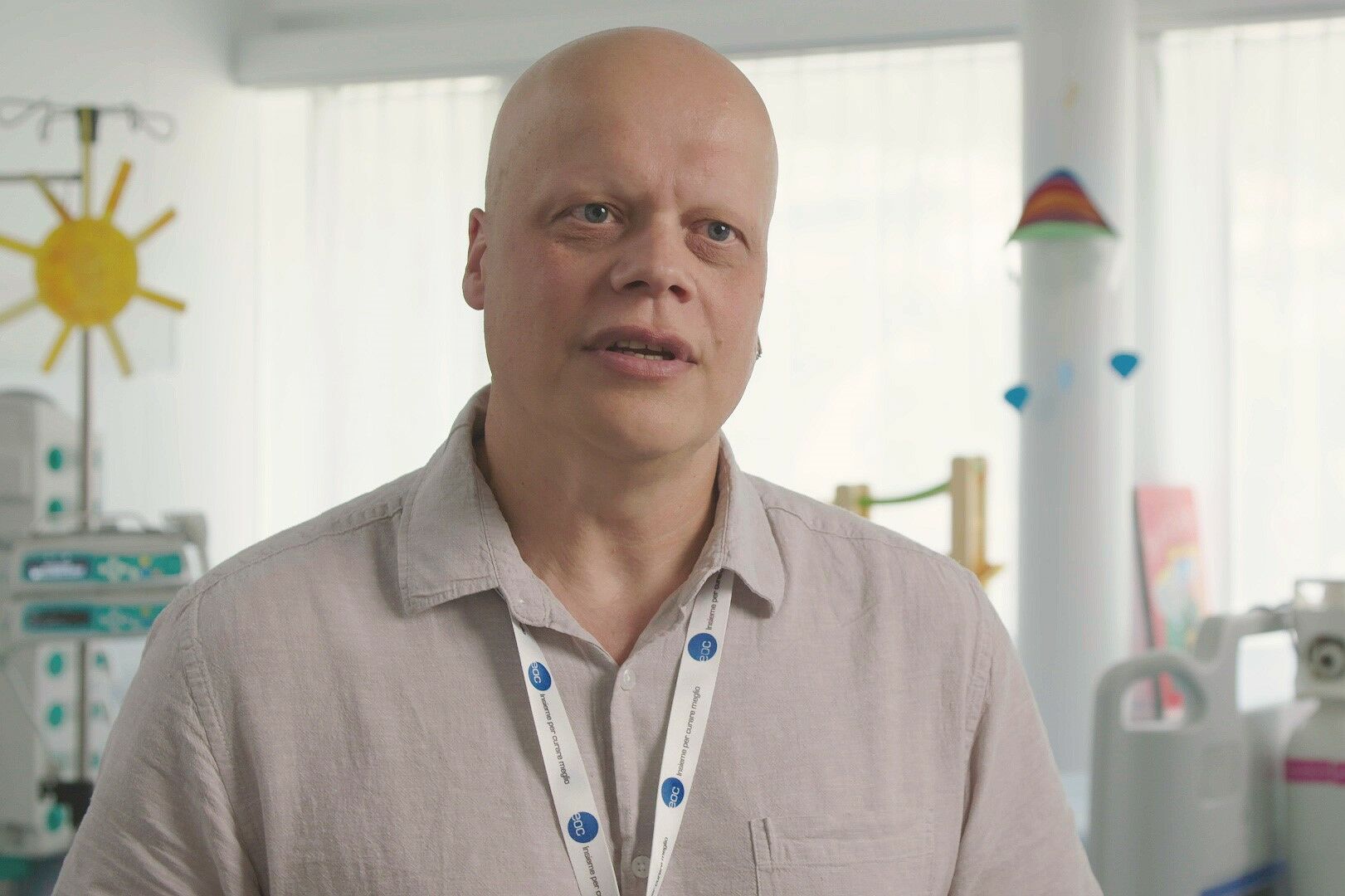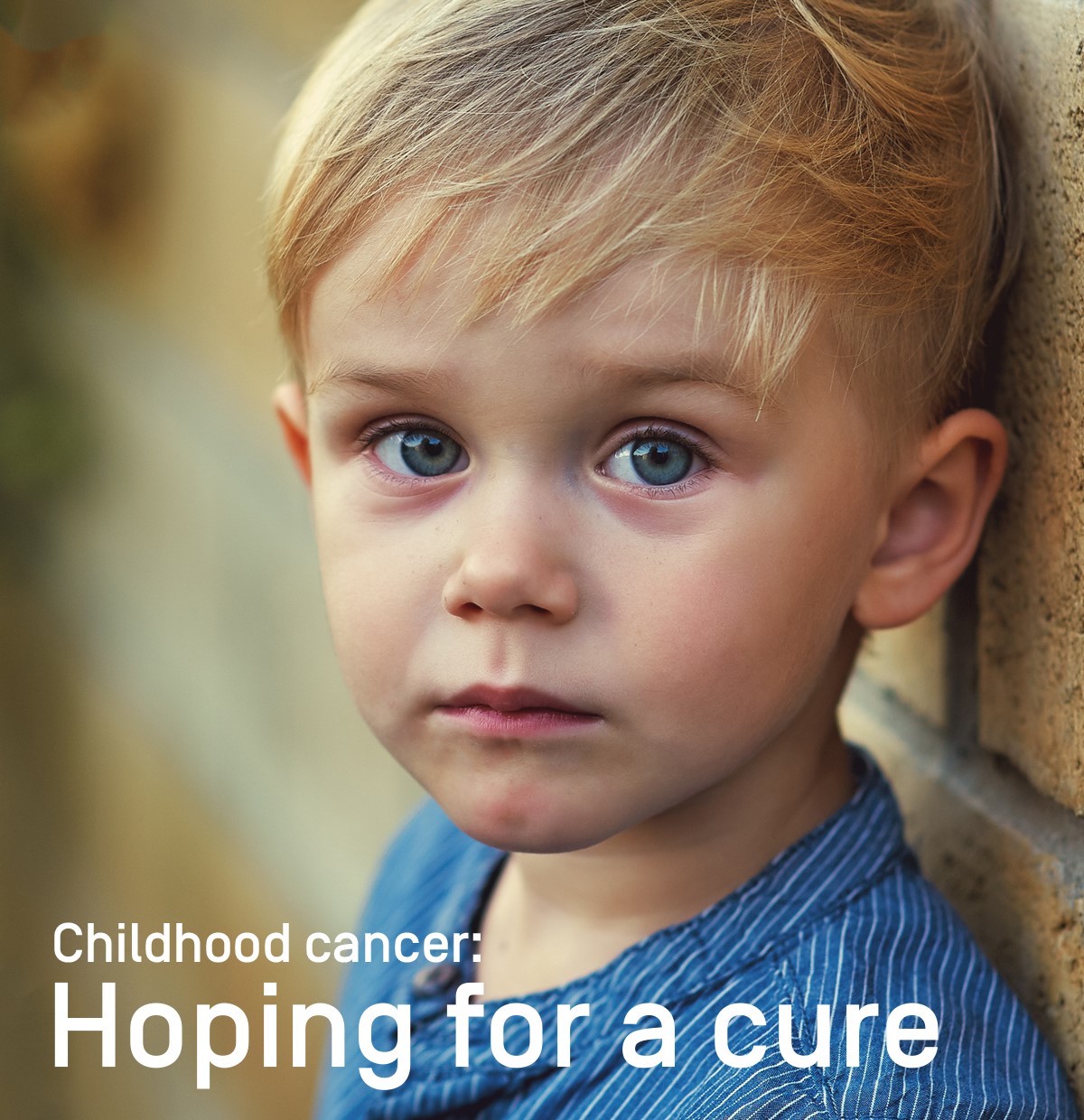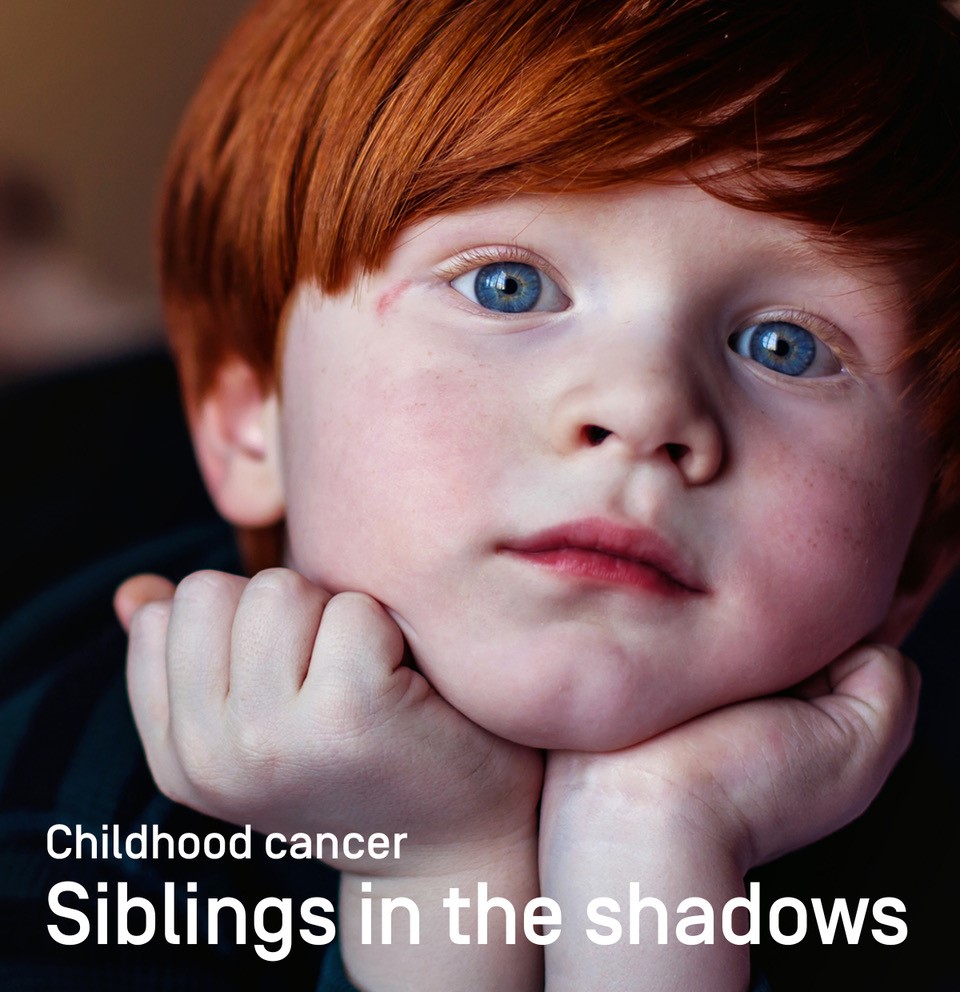The situation becomes particularly difficult if urgently needed medicines and additional therapies are not paid for by the health insurance companies or are only reimbursed after a great deal of bureaucracy. This causes an enormous additional burden and great uncertainty for the parents at a time when the survival of their child is quite naturally their main focus. Elaborate, time-consuming clarification procedures and unnecessary bureaucracy can lead to delays in treatment and thus impair the children’s chances of recovery. Because cancer develops much faster in children than it does in adults and requires an immediate response. The reform of the Ordinance on Health Insurance currently planned by the federal government will exacerbate the problem and further impair access to vital drugs and medication for children with cancer.
“It was a massive shock for us when we found out the health insurance company didn’t want to pay.”
Shanna G., affected mother
Cancer drugs for children in off-label use
The small number of children and adolescents with cancer compared to the number of adult cancer patients means it is less attractive for the pharmaceutical industry to develop and market specific drugs for this group of patients. That is why most of the drugs used to treat young patients are only approved for adults. However, these applications under what is called off-label use do not fall under the official indications. The health insurance company or the invalidity insurance (IV) thus only reimburses the costs as an exception and under certain conditions. Currently around 90 per cent of all drugs used to treat children and adolescents with cancer are affected by this. Whether a therapy for a child with cancer is paid for or not thus depends entirely on the decision of the respective insurer.
“I really had to fight to get the health insurance company to pay for my son’s chemotherapy.”
Alessia B., affected mother
High recovery rates thanks to standardised treatment protocols
In Switzerland, the majority of affected children and adolescents are treated in compliance with strict international treatment protocols approved in advance by Swissmedic and verified and authorised by Swiss Ethics Commissions. These protocols make it possible to provide every child with cancer access to the best international therapy options and thus cure 80 per cent of patients. In contrast to adult oncology, paediatric oncologists thus do not recommend an individually compiled course of treatment, but are obliged to strictly adhere to the treatment guidelines and drugs specified in the treatment protocols. All paediatric oncologists in Switzerland use the same treatment protocol. Thanks to this nationwide therapy standardisation, a high degree of quality-assured, verifiable medicine can be achieved. Notwithstanding this fact, standardised treatment elements have to be justified individually to the insurer for each patient on a regular basis, and sometimes have to be implemented in a complicated, elaborate procedure.
Automatic coverage of costs for standard therapies
These lengthy clarification processes unnecessarily burden the paediatric oncology centres and cost valuable time. While older and more favourably priced medicines are usually reimbursed, the hurdles that have to be taken when it comes to covering the costs of new and more expensive medicines are often higher: depending on the insurer, they are either only approved after a great deal of bureaucracy, or they are refused altogether. Thanks to rapid medical advances in the treatment of adult cancer, children will also increasingly have access to innovative therapy options in the coming years. Due to the higher costs, this will be accompanied by increasing cost pressure. It is therefore to be feared that the problem will continue to grow in the future, particularly in the area of paediatric oncology. All drugs and medicines included in these tested and approved standard therapies should therefore automatically be covered by the health insurance company or the invalidity insurance (IV).
“Using an innovative drug can decide over the life and death of a child.”
MD Pierluigi Brazzola, paediatric oncologist
Insurers shirking their responsibility
Children and adolescents can contract one of more than 60 different types of cancer which in turn differ from each other within a tumour group. Some of these tumours occur extremely rarely in Switzerland. If a treatment does not work or if the cancer recurs, the doctors try everything to save the child’s life. Newer and more expensive drugs are often used to be able to fight the tumour more directly. Due to the low number of patients, there is usually no treatment protocol in these cases. This makes it particularly difficult for the paediatric oncologists treating the patients to provide definitive evidence of the therapeutic benefit to the medical officer of the health insurance company or the IV. This is why initially the companies refuse to cover the costs in around 50 per cent of cases. Then a lengthy negotiation process between paediatric oncologists, insurers and drug manufacturers often begins. Nevertheless, there is still a definitive refusal re costs in around 20 per cent of costs. In this case, the parents can only hope that a foundation will agree to cover the costs of therapy because otherwise they will have to pay for it themselves. The fact that insurers are shirking their responsibility for children with cancer, for the weakest and most vulnerable of patients, raises major ethical questions.
A committee of experts for complex cases and relapses
The assessment of complex, rare diseases such as childhood cancer requires highly specialised expertise. The insurers’ medical officers who have to assess applications for cost approvals from different medical fields usually do not have the necessary expertise to do so. Childhood Cancer Switzerland is therefore calling for a specialist and binding expert committee of paediatric oncologists to provide support and ensure that the benefit of a non-standardised therapy can be assessed adequately by the medical officer. This is the only way to guarantee that, in future, children and adolescents with cancer will receive equal and fair access to the best possible therapies in complex cases and if their cancer recurs.

Report (in German) on the subject in the SRF-Tagesschau of 16.10.2022. Click on the picture to play.
Better cost coverage for accompanying therapies
For children with an immune system that has been weakened by their cancer therapy, infections can very quickly become life-threatening. Bacteria, viruses and fungi penetrate the body more easily and multiply there unhindered. This is why, alongside the cancer treatment, complementary therapies, referred to as supportive therapies, are extremely important. They serve not only to prevent infections, but also to improve the quality of life, for example by helping to make painful procedures more bearable. Many medicines used in this context are not reimbursed by the health insurance company or IV. The consequence: some affected parents end up having to pay for the therapy themselves. This is why broader coverage of the costs of these supportive measures, which are so important for patients, is necessary.
The federal government reform puts children and adolescents with cancer in a predicament
The Federal Council's planned revision of the Ordinance on Health Insurance (KVV) would massively exacerbate the existing challenges with regard to the coverage of the costs of medicines. This is because clinically controlled trials are now required, which must demonstrate an improvement of at least 35 per cent compared to the standard drug therapy or – in the absence of such – to the placebo. Lots of drugs on what is called the speciality list simply do not meet this requirement. The fact that drugs in off-label use are subject to far stricter criteria than medicinal products subject to compulsory health insurance is fundamentally contrary to the purpose of the prescription provisions of the case-by-case reimbursement*. This amendment would thus hit patients with rare diseases, such as children and adolescents with cancer, particularly hard. For rare diseases such as childhood cancer, there are hardly any treatment protocols for relapses or refractory diseases that do not respond to standard therapies due to the low case numbers. Demonstrating an added value of 35 per cent would thus be impossible in many cases. The consequences would be fatal: treatments would be even more difficult to reimburse in the future and the chances of recovery would be considerably reduced. Because this new provision would put children and adolescents with cancer in a drastic situation, it is imperative that it is abandoned.
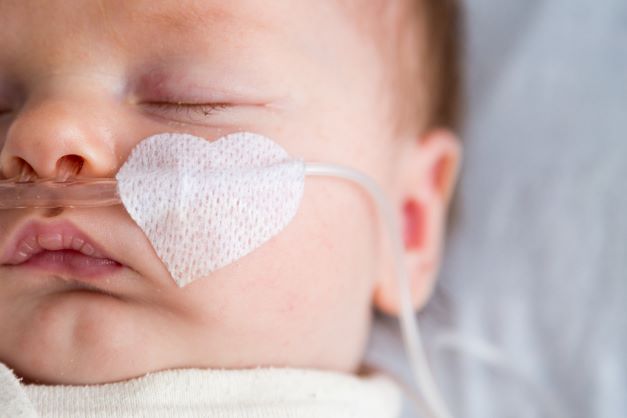
Symbolic image
Childhood Cancer Switzerland mobilises against the inequality in treatment
Childhood Cancer Switzerland wants insurers to cover the costs of all the necessary drugs in future. This includes the automatic reimbursement of all medicines used in standard therapies. In addition, the umbrella organisation is calling for the involvement of a binding and independent expert committee from the field of paediatric oncology to support the medical officers and to assess the therapeutic benefit of a non-standardised treatment. This would avoid unfair treatment of patients depending on the health insurance company or cantonal IV office in contentious cases. With regard to additional therapies that can prevent life-threatening infections in immune-compromised children and noticeably improve their quality of life, there is also a need for a broader coverage of costs by insurers.
The current revision proposal of the federal government will not solve the problem of equal access to vital medicines in paediatric oncology, but will in fact in some cases noticeably worsen it. This is why Childhood Cancer Switzerland is rejecting the draft ordinance and is instead offering active support in the development of viable solutions. A statement issued by Childhood Cancer Switzerland as a reaction to the Federal Council’s proposals included corresponding possibilities for improvement. This was supported by all nine SPOG** member clinics specialised in treating children and adolescents with cancer. Alongside purposeful talks with important political players, alliances were also able to be established with other partners from the health sector to jointly draw attention to the negative consequences of the current amendment. At the same time, the umbrella organisation has launched a successful media campaign to raise awareness of the looming care gap with the public and decision-makers. You will find more information on our political engagement here.
* Articles 71a–71d of the Ordinance on Health Insurance (KVV) regulate the reimbursement of medicinal products for off-label and off-SL therapies on a case-by-case basis. This is an exception that is primarily intended to ensure access to drugs not listed on the SL (speciality list) for the treatment of fatal diseases and severe as well as chronic health impairments.
** Swiss Paediatric Oncology Group (SPOG)

